Island rescue: Ontario veterinarian, others, help Caribbean dogs, cats
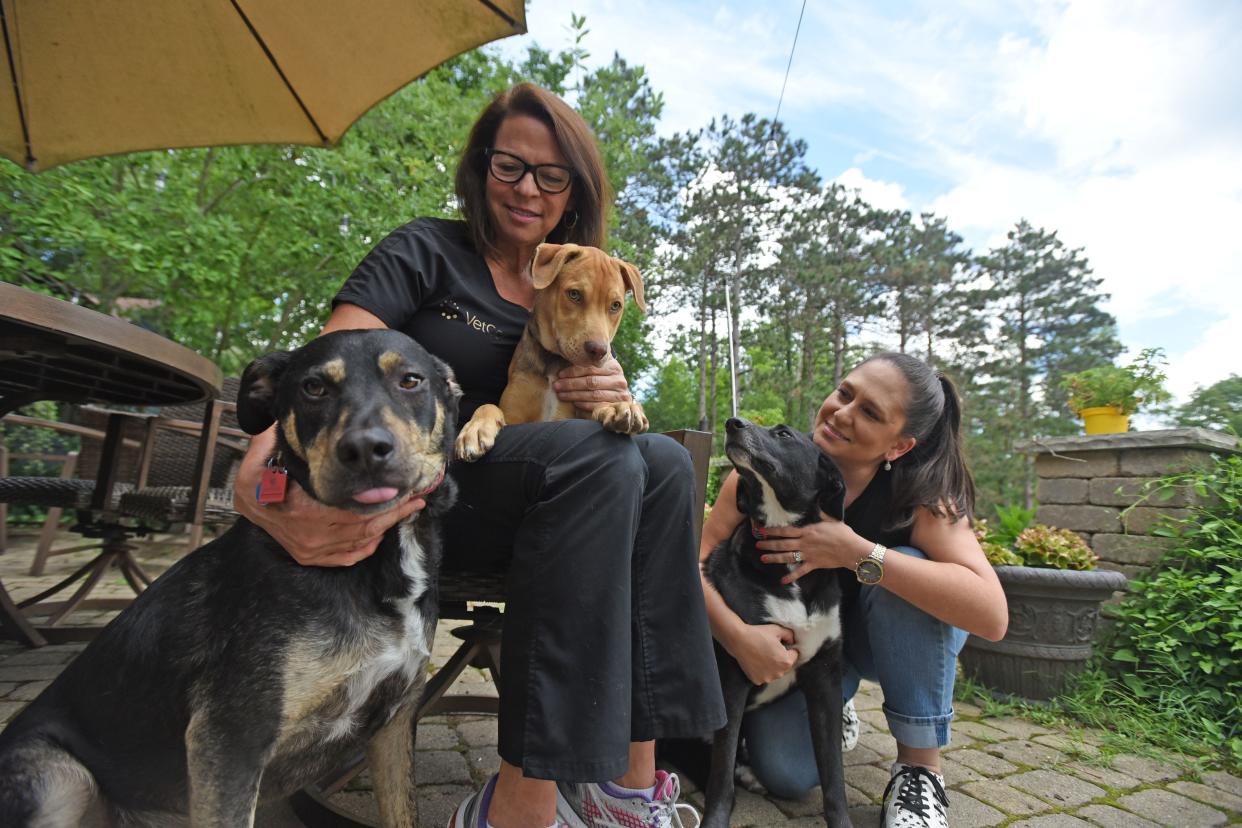
An Ontario veterinarian's canceled conference in the Caribbean nation of Turks and Caicos led to the startup of a nonprofit organization that has helped hundreds of homeless dogs and cats that roam the islands, hungry and in poor health.
Dr. Sue Burkhart of Animal Medical Center of Ontario said she decided to go on the trip in the fall of 2020 despite a continuing education meeting being canceled, and volunteered to help a veterinarian for the week.
While there, she discovered the nonprofit Turks and Caicos Society for the Prevention of Cruelty to Animals, which is dedicated to preventing abuse of animals in the Caribbean island nation.
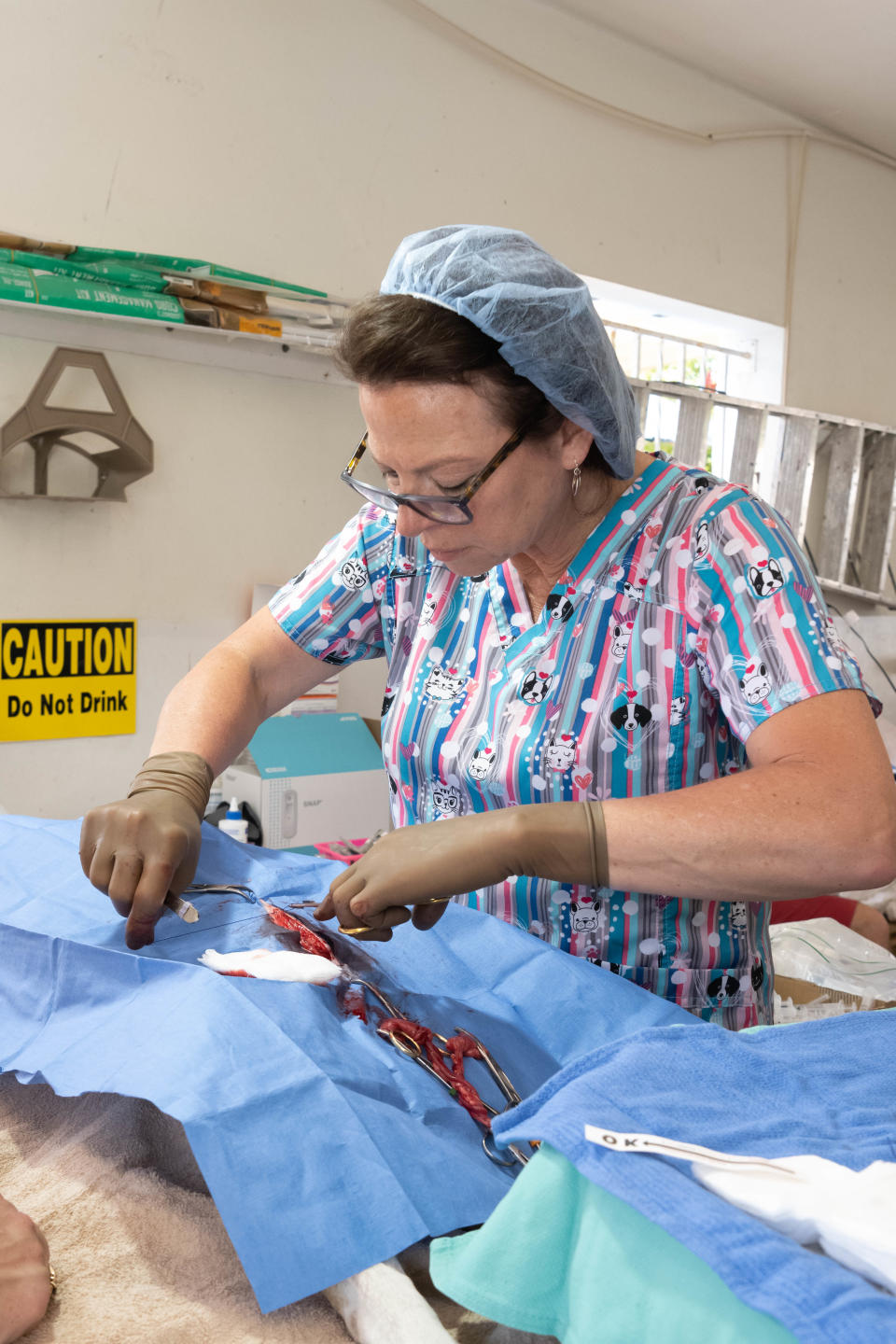
Burkhart spayed and neutered dogs while on the tropical island.
"While I was there for the week I realized what a problem they had with overpopulation of animals and stray animals and so I thought, I'm not comfortable with this. At the time the world was kind of falling apart (COVID-19) and I thought this is a problem I can actually help. It's something I can do to actually give back. I know what to do about this problem and I could do my part," Burkhart said Monday.
Her one-week stay inspired more trips to help Caribbean island animals and to establish 4 Leaf Rover in January of this year.
Burkhart has continued to go back to Turks and Caicos to volunteer. She enlisted the help of photographer Bertha Bishop and Jennifer Weitzel, who is a regional manager of VetCor, the company Burkhart works for, and other animal lovers to find out more about the problem and volunteer.
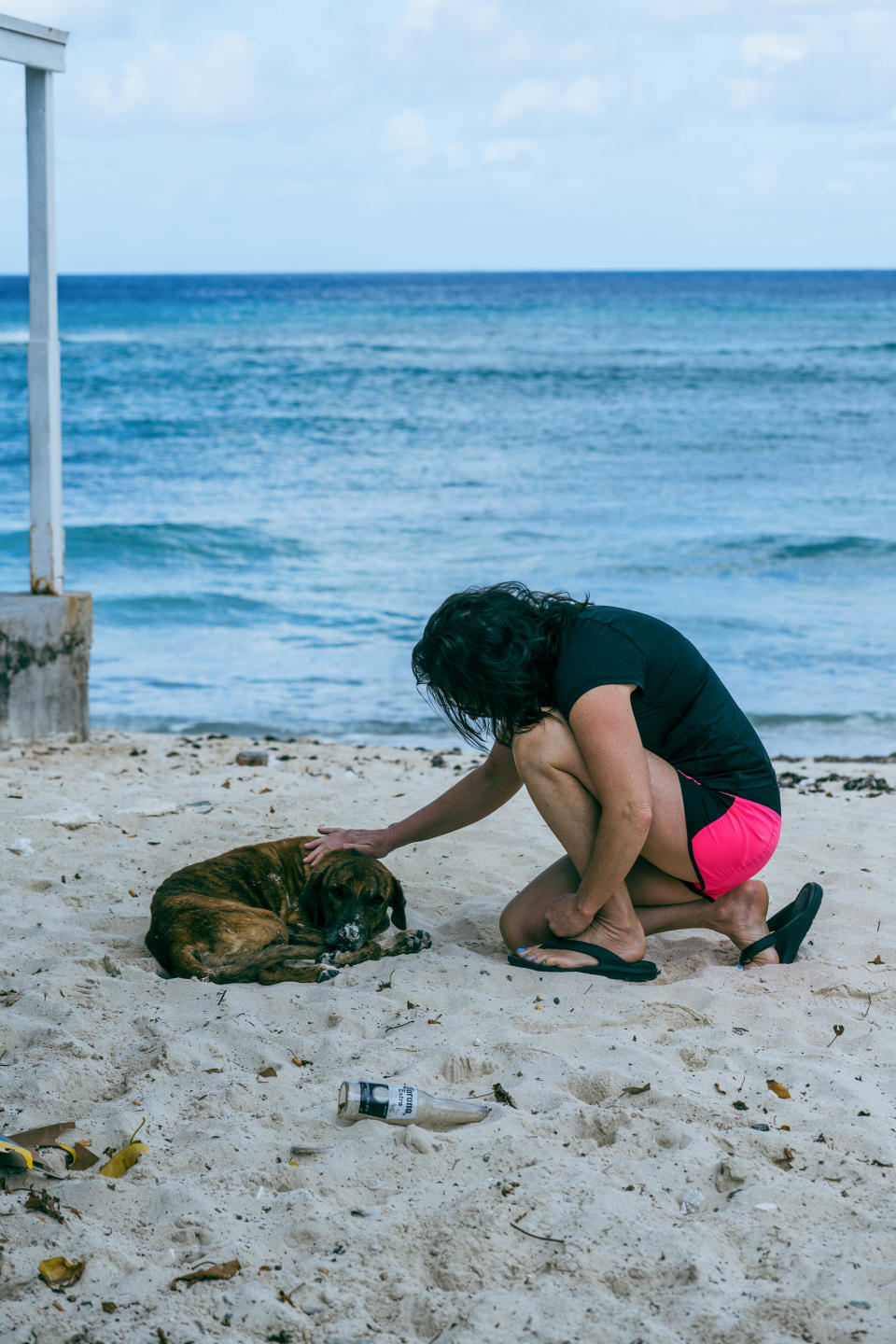
'Like nothing I had ever seen'
The last trip in April, she and a team of nine volunteers of the nonprofit returned to Grand Turk, one of seven islands that make up the Turks and Caicos, to help the animals.
"The problem was like nothing I had ever seen. There were dogs everywhere. They slept on the beaches at night, they begged for food, they were injured, they were reproducing, there were puppies running in the road. It was so bad my vacation wasn't even enjoyable," Burkhart said. "I just drove around all day on the golf cart putting out food and treats and fresh water and trying to care for these animals."
She said on that island a brindle male dog stole her heart and she promised him she would be back.
"I cried when I left," Burkhart said. "I got home and decided to form this organization, 4 Leaf Rover, whose moniker is 'changing the bad luck of good dogs.'"
On the April trip, she surrounded herself with good people including two other veterinarians from Texas, three veterinarian nurses, and three others including Bishop who captured the animals and helped them before returning them to where they were found.
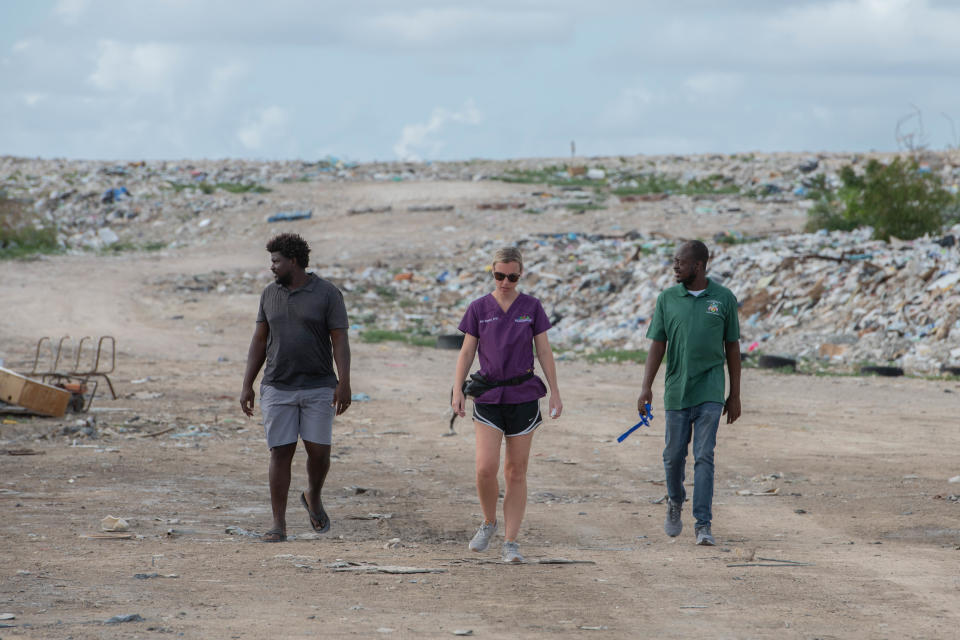
Starting in January, the nonprofit a 501(C)3 raised $22,000 in four months, with 70% of the funds donated by Mansfield residents, Burkhart said. The money allowed the group to spay and neuter 300 dogs and cats.
"We just told the local (Caribbean) people if you have a sick animal, just get it in here and we'll take care of it," Burkhart said.
Care of the dogs included removing fleas and ticks, intestinal parasites and more.
"We treated wounds, infections. There were several animals we saw on the island unfortunately we had to euthanize them," she said.
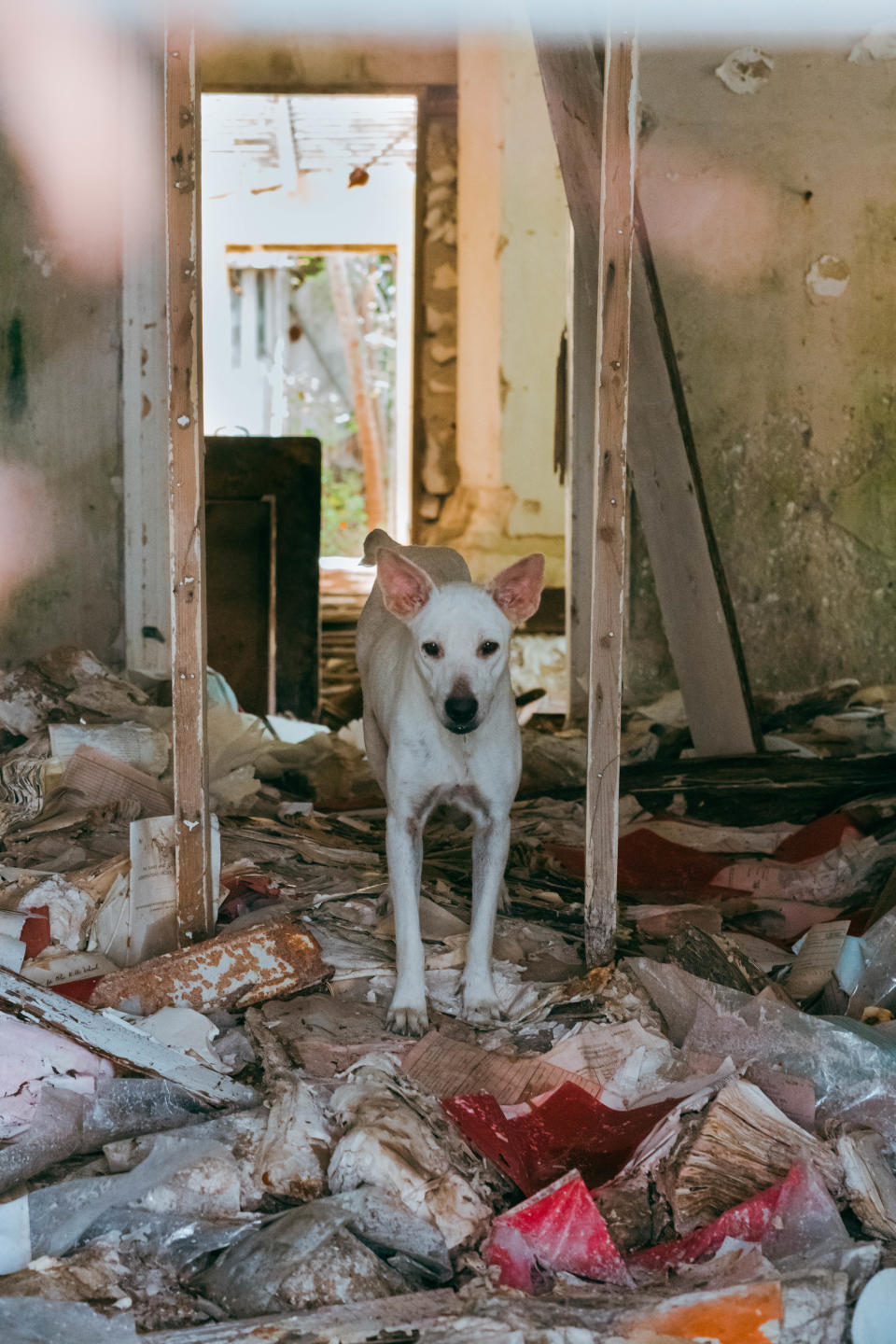
Islanders' pets treated differently than in USA
Burkhart said the economy on the island is very poor. They don't really have any commodities. The island is seven miles long.
"They rely on tourism but there was no tourism," she said, referring to the COVID pandemic.
"Our services were needed so bad. We did it for the animals, not the people," she said. "The animals are kind of victims of circumstance there. They don't have any say in the kinds of homes they're born into and to be honest, most the animals we treated didn't have homes," Burkart said.
"Animals there don't live in peoples' house and most people, even though they may claim they own an animal, they don't feed them," she said.
"It's a very different thought process they have of pet ownership and the value of pets," she said.
Richland County: Three Apostolic Christian Church Retirement Center residents die in crash
While there, volunteers educated the islanders, especially the children, about caring for animals. Children didn't understand why the volunteers cried.
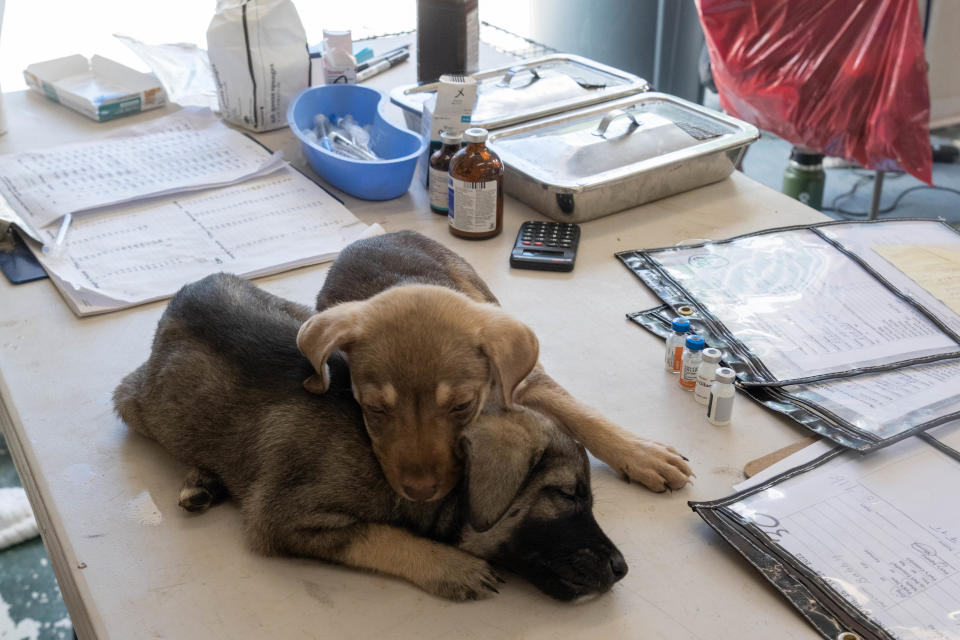
"We tried to help them understand that animals have feelings too. They feel pain, they feel hunger," she said. "It was a lot of educating. We felt the way to change views on the island was to start with the children and try to explain to the children and teach the children, that animals have worth," Burkhart said.
Bishop, the marketing director for 4 Leaf Rover, went on the missions to photograph everything.
"One little boy looked at us and said you guys get so emotional about the animals," Bishop said. A veterinarian with her told the little boy that in America animals are treated like family.
Caribbean dogs living in Mansfield now
Bishop adopted three of the island dogs, Turk, Isla and Rum which islanders call "potcakes" because they eat the burned rice and peas left in the bottom of a pan used for cooking family meals.
The group of volunteers rescued 15 dogs all told, all of which now live in Mansfield, Texas, and Cincinnati. Each dog cost $200 to bring back, putting their carrier under their airplane seat.
Burkhart plans to return to the Caribbean in March 2023 and take an additional veterinarian to knock out another 400 surgeries.
Burkhart said the government of the Cayman Islands has OK'd the poisoning of the animals at feeding stations to control overpopulation, so she is going there in September to meet rescue organizations and the government to offer them a more humane option.
Cats are the major animal problem on Grand Cayman, while dogs are the concern on Grand Turks.
4 Leaf Rover also plans to explore places in the United States where they may be of service.
For more information, go to the nonprofit group's Facebook page, facebook.com/4leafrover or Instagram at 4leaf_rover.
Their website is www.4leafrover.net
lwhitmir@gannett.com
419-521-7223
Twitter: @LWhitmir
This article originally appeared on Mansfield News Journal: Island rescue: Ontario veterinarian, others, help Caribbean dogs, cats

